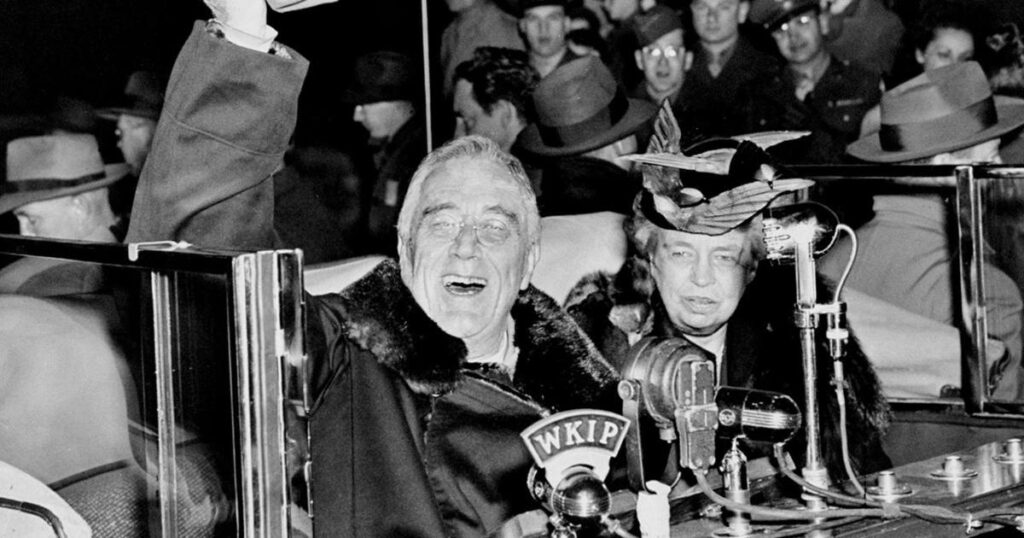By now, you see the picture. President Biden says he’s going all out. And no one, well, almost no one, can convince him. Asked by ABC News’ George Stephanopoulos last Friday if he would resign if he was convinced he couldn’t beat Donald Trump, Biden responded, “Well, that depends. If God Almighty says so, I might!”
“Let me say this as clearly as I can: I’m continuing my campaign,” he told a cheering crowd in Madison, Wisconsin, on Friday.
Click here to see related media.
Click to enlarge
Biden’s decision comes as some Democrats urged the 81-year-old Biden to step down after last month’s debate.
But beyond the anxious headlines in Washington, this moment also reeks of history. Two former presidents are offering Biden some guidance on how to handle tough questions about age, fitness and politics in his reelection campaign. “I think history gives us two ways of thinking about this extraordinary moment,” said Doris Kearns Goodwin.
She noted that in 1944, President Franklin D. Roosevelt faced health concerns and decided to stay on for a fourth term as World War II raged. “He decided to continue to run for his country because in some ways he felt like a soldier who couldn’t give up his position when his country called on him to run,” Goodwin said.
Roosevelt made an effort to demonstrate his energy to the nation, which wasn’t always easy. “He looked much older than his age,” Goodwin says. “He was only 62. The presidency ages you. But he understood the situation he was facing, and in spite of his ill health, he decided he was the best person to fill the position, and he went ahead. So he decided to go out into the nation.”
President Franklin D. Roosevelt and Eleanor Roosevelt wave to crowds as they conclude a presidential campaign tour in Poughkeepsie, New York, on November 6, 1944. Roosevelt was elected to his fourth term as president. Charles Hoff/NY Daily News Archive via Getty Images
Then in 1968, President Lyndon B. Johnson decided to back down as pressure mounted, announcing on March 31 after the New Hampshire primary that he would not seek or accept his party’s presidential nomination. “He decided he wanted to bring peace to Vietnam because things were so difficult for the country, and that decision shocked the country,” Goodwin says. “But he believed it was in the country’s interest, and there was an extraordinary response to it. He said it was the happiest he’d ever been in his presidency.”
Like Roosevelt and Johnson, Biden’s challenge will be to show the American people he is the right man for the job, not just in one interview but by demonstrating his ability to lead what is perhaps the most difficult job in the world, she said.
“President Biden should be proud of his humble character,” Goodwin said. “He had tenacity. He had empathy for other people, for communities around the country, for people in need, and he had a sense of accountability and responsibility. So I think holding on to the idea that what he wants more than anything is for that character to remain and be part of his legacy will influence how he decides on this. It’s really a decision that only he can make. It’s going to be a very difficult decision that he’s going to have to make in the coming days and weeks.”
Detailed information:
Story Producer: Jon Karas. Editor: Karen Brenner.
More about Robert Costa


